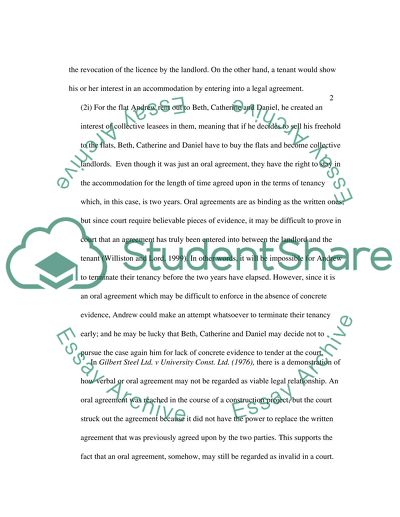Cite this document
(“Land Law Outline Example | Topics and Well Written Essays - 1000 words”, n.d.)
Retrieved de https://studentshare.org/law/1390728-land-law
Retrieved de https://studentshare.org/law/1390728-land-law
(Land Law Outline Example | Topics and Well Written Essays - 1000 Words)
https://studentshare.org/law/1390728-land-law.
https://studentshare.org/law/1390728-land-law.
“Land Law Outline Example | Topics and Well Written Essays - 1000 Words”, n.d. https://studentshare.org/law/1390728-land-law.


